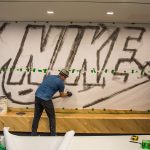A number of retail and industry groups—including OIA, NRF, FDRA, AAFA and RILA—welcomed the signing of the phase one trade deal between the United States and China. Many renewed calls for the administration to promptly conclude a phase two deal to lift all punitive tariffs.
As part of the phase one agreement, the United States will reduce existing punitive tariffs on $120 billion worth of Chinese imports (List 4a) from 15 percent to 7.5 percent and maintain a 25 percent tariff on approximately $250 billion of Chinese imports. Other tariffs remain in effect.
The National Retail Federation (NRF) welcomed the signing but said work remains to be done to end the trade war between the two countries.
“NRF strongly supports the administration’s efforts to address China’s unfair trading practices but we hope this is the first step toward eliminating all of the tariffs imposed over the past two years,” NRF President and CEO Matthew Shay said. “The trade war won’t be over until all of these tariffs are gone. We are glad to see the phase one deal signed, and resolution of phase two can’t come soon enough.”
Shay was on hand as President Trump and Chinese Vice Premier Liu He signed the agreement at the White House today.
“NRF strongly supports the administration’s efforts to address China’s unfair trading practices but we hope this is the first step toward eliminating all of the tariffs imposed over the past two years,” NRF President and CEO Matthew Shay said. “The trade war won’t be over until all of these tariffs are gone. We are glad to see the phase one deal signed, and resolution of phase two can’t come soon enough.”
Shay was on hand as President Trump and Chinese Vice Premier Liu He signed the agreement at the White House today. As part of the deal, the United States will cut in half 15 percent tariffs imposed on a wide range of consumer goods imposed in September and canceled another round that was set to take effect in December, but others remain in effect.
While agreeing with the need to address unfair trading practices, NRF has led the retail industry’s fight against tariffs and is a key member of the Americans for Free Trade coalition.
The Outdoor Industry Association (OIA) noted that some of the outdoor products impacted by this change include hiking boots, ski jackets and tents. OIA welcomes the reductions in tariffs on these products in order to reduce the impact of millions of dollars currently being paid by American companies.
“Outdoor companies are not only eager to see the phase one trade deal go into effect but also implore the administration to quickly eliminate punitive tariffs on all other Chinese imports,” said Patricia Rojas-Ungar, vice president of government affairs at OIA. “The uncertainty about when these tariffs will be reduced or eliminated and the possibility that new tariffs could still be imposed has significantly inhibited the ability of outdoor companies to explore new business opportunities, develop new products and create U.S. jobs. Eliminating these tariffs will help outdoor companies get back to doing what they do best: creating new, innovative outdoor gear to enhance the outdoor experience and help the U.S. economy continue to grow. American outdoor businesses will continue to pay millions in unnecessary tariffs until this trade war with China is fully resolved and all Section 301 tariffs are removed.”
OIA also released the latest data on Section 301 tariffs paid by outdoor industry companies through November 2019. Year over year, outdoor industry companies have continued to see increases in overall tariffs paid on imports from China as a result of the trade war. From January to November of 2019, outdoor industry companies paid $7.7 billion in tariffs on affected products from China, up from $5.2 billion in 2018 and $4.6 billion in 2017. Furthermore, outdoor companies paid over $800 million in tariffs in November alone, including an estimated $480 million directly from Section 301 tariffs.
According to the latest trade data, despite a drop (19 percent) in imports of List 4A products in November 2019 compared to the previous year, outdoor companies paid:
- Nearly $60 million in additional tariffs on apparel
- Nearly $100 million in additional tariffs on outdoor equipment
- $50 million in additional tariffs on footwear
The American Apparel & Footwear Association (AAFA) President and CEO Steve Lamar expressed disappointment that the ‘Phase One’ trade deal signed with China contained limited tariff relief for U.S. companies and consumers. Reiterating that all products hit with punitive tariffs during the Trump administration’s trade war with China will continue to be penalized following the implementation of the deal, Lamar also highlighted industry concern with the use of tariffs as an enforcement mechanism.
“This deal provides the apparel and footwear industry with very limited tariff relief following the biggest tariff increase since the Great Depression,” said Lamar. “All of our products that have been hurt by this trade war will continue to be hit – including 92 percent of the apparel, 53 percent of the footwear, 68 percent of the home textiles, and all of the travel goods and accessories that are imported from China, which is the primary source of these products. These tariffs are a huge tax on our industry, directly impacting our four million American workers and each and every American family. The administration is literally taxing Americans to get dressed every morning, and promising to do that for the foreseeable future.
“Further, the deal does little to help American manufacturers in our industry. Not only does this deal leave in place tariffs on key imports of materials and machinery used to make clothing, footwear, and textiles in the U.S., but it also allows China to keep in place huge retaliatory tariffs on American exports of cotton, hides, leather, textiles, shoes, and clothing.
“Equally concerning is the prospect that tariffs will be used as an enforcement mechanism, which could lead to new tariffs at any time. We do not see taxing American citizens as an effective way to change the policies and practices in China.
“Trade deals are a great way to extend American values and export opportunities around the world, and we are pleased that the administration has embedded some of these provisions, including measures to fight counterfeits on eCommerce sites, in this agreement. But those deals should not perpetuate high taxes on American companies and consumers.”
Footwear Distributors and Retailers of America (FDRA) President and CEO Matt Priest issued the statement: “We are pleased to see the first round of negotiations coming to a close in the signing of the Phase One agreement today. While it does not remove all the punitive tariffs the Trump Administration has levied against American companies and consumers, it will provide a little more certainty as we start the new year, which is key to job growth and retail price stability for shoe consumers. Tariffs raise costs on consumers and shoe tariffs hurt working families the most. That is why we have said tariffs on shoes should not be used as a weapon in this continuing trade war. Even with the removal of some of these duties, footwear tariffs will still average 12.2 percent with up to 67.5 percent on certain kids’ shoes. A dynamic U.S. trade policy would not just reduce tariffs back to pre-Trump Administration rates but would actually trim them further to spur economic growth and consumer buying power. This is a story we are preparing to tell policymakers in Washington, D.C. as we go back on the offensive in 2020.”
The Retail Industry Leaders Association (RILA) issued a statement from Blake Harden, vice president, international trade: “The phase one trade deal signed today marks a critical step in the right direction towards restoring a mutually beneficial trade relationship between the world’s two largest economies. RILA appreciates the Administration’s efforts to deliver this deal. While this agreement offers some relief, retailers ultimately want a long-term deal that rolls back all tariffs and provides the kind of certainty and predictability needed to plan and invest while operating in a global economy. Leading retailers urge the Administration to conclude the phase two negotiations quickly to get us to that goal.”













